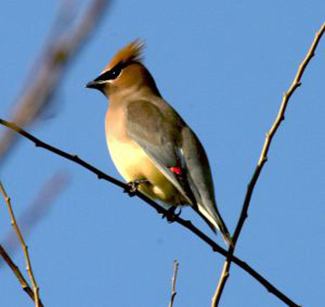FAYETTEVILLE, Ark. The University of Arkansas student chapter of The Wildlife Society, needs your help with a survey to identify places on campus where there may be a problem of birds flying into glass windows. The survey is being conducted in conjunction with the University of Arkansas Office for Sustainability and the Natural Systems Workgroup and will continue through the end of October.
This survey will be repeated during spring migration to produce a report on bird strikes on the U of A campus for the Sustainability Council to consider.
Anyone can become a citizen scientist by reporting any dead or stunned birds that you see on campus from now until the end of fall migration season. Migrating birds are particularly prone to striking windows, as they are unfamiliar with the local landscape.
If you see a dead bird on campus, you can report its location by filing out this form. You can also submit a picture of the bird by emailing Dr. Kimberly Smith at kgsmith@uark.edu. Please don’t touch the bird. Federal law requires anyone handling a migratory bird to have a federal permit. A member of The Wildlife Society chapter with the proper permits will retrieve the bird when notified.
Ornithologists estimate that up to 100 million birds are killed each year by colliding with windows. These are usually small songbirds that may fall unnoticed to the ground. Sometimes the birds are merely stunned and recover in a few moments. Often, though, window hits lead to severe internal injuries and death. It is thought that birds hit windows because they see the landscape—trees, sky, clouds—reflected on the glass surface but do not realize that a hard, transparent surface lies between them and that apparent open space. Also, birds might see through a structure like a glass walkway and not see the panes of glass.
A number of fairly easy solutions exist for reducing bird strikes, and other campuses have had great success in reducing bird strikes on their campus. Temple University in Philadelphia is one example.
Topics
Contacts
Carlos Ochoa, director
Office of Sustainability
479-466-8637,
Steve Voorhies, manager of media relations
University Relations
479-575-3583,
